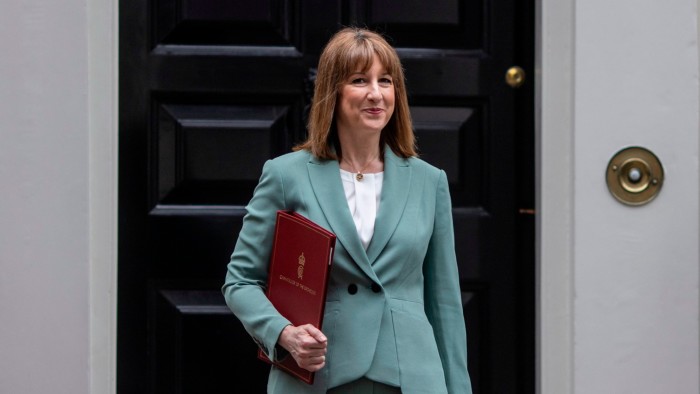Unlock the Editor’s Digest for free
Roula Khalaf, Editor of the FT, selects her favourite stories in this weekly newsletter.
Rachel Reeves’ first year as UK chancellor has been one to forget. She has been haunted by rising bond yields, unshakeably poor economic growth and mounting political pressures, which have forced her to make unpopular spending cuts and U-turns. Businesses and investors have also been downbeat since she raised taxes in her inaugural budget last October. Wednesday’s spending review, where the British government outlines its plans for day-to-day and capital expenditure, was the moment Reeves laid the foundations to begin turning things around for herself — and the country.
The chancellor confirmed a much-needed package of over £100bn in public investment. The UK’s sluggish productivity performance emanates, in large part, from decades of low capital expenditure. The large envelope was made possible by Reeves’ shrewd decision last year to reform the UK’s fiscal rules to enable borrowing to fund investment.
A big slice of capital spending was allotted to the UK military, which desperately needs modernisation. Reeves has also, sensibly, directed funds at affordable housing, regional connectivity and energy security. Creaking road, rail and grid infrastructure has long held back Britain’s growth. Further details in next week’s infrastructure strategy, and the delayed industrial strategy, will be important in crowding-in private investors.
The spending review made important allocations to the UK’s ailing public services too. The 3 per cent real-terms rise in annual day-to-day funding for the healthcare system should help to alleviate the strain of long waiting lists and ill health on the economy. The nation’s clogged schools and prisons also got solid settlements.
Broader reforms are vital, however, to unlock the benefits of these generous packages. For instance, while there was extra cash for training and upskilling, Britain still risks falling short on the construction workers, engineers and architects it needs to deliver the government’s ambitious building boom. Changes in the visa system may be needed. A fall in planning approvals for homes in England in the first quarter to their lowest in 13 years highlights the need for Labour to push on with its planning reforms. The health system will also continue to hoover up taxpayer funds unless plans to focus on prevention and community care make headway.
Infrastructure, health and defence are the right priorities. But splashing the cash in those areas means several departments, including the Home Office and transport department, face real-term cuts in current spending. An initiative to boost public sector productivity using artificial intelligence is welcome, but proof will be in the delivery. Indeed, with the chancellor’s thin buffer against her main fiscal rule to balance the current budget, she has not yet staved off pressure from the bond market. The UK’s long-term gilt yields remain elevated.
For now, the spending plans put momentum behind the government’s efforts to fix Britain’s public services, raise investment and boost growth. Spending is, however, just one part of the chancellor’s job. The government must now ensure the cash is spent wisely, and restrain its rising costs. The UK’s welfare and pensions expenditure remains on an unsustainable path, the country’s tangled tax system is in urgent need of reform, and the chancellor may yet need to revisit her promises not to raise key levies in the autumn Budget this year. The spending review shows the government can be bold on spending. It must now prove it can deliver complex and wide-ranging reforms, and balance the books too.




